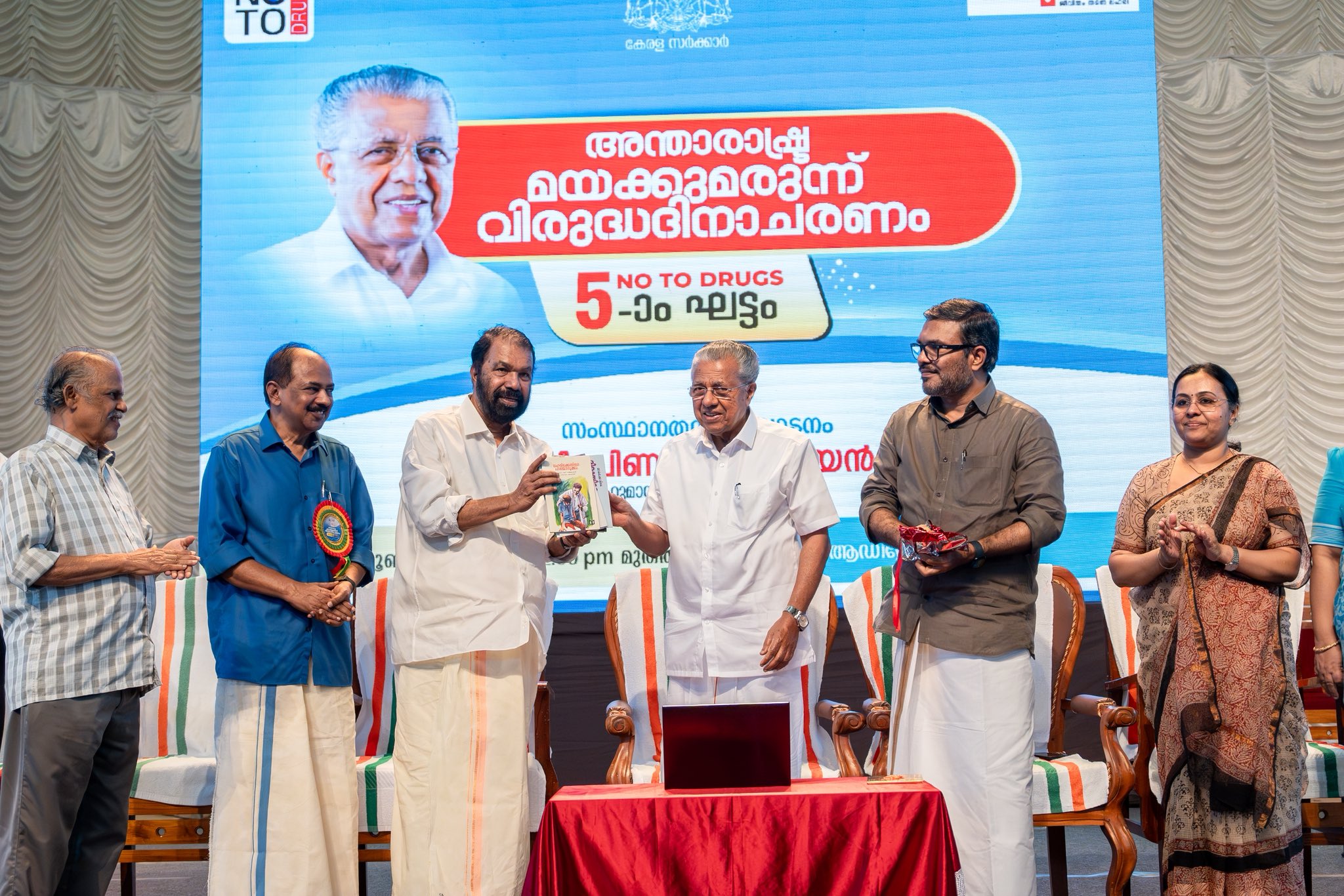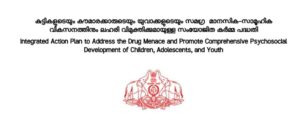Published Sep 27, 2025 | 3:49 PM ⚊ Updated Sep 27, 2025 | 3:49 PM

Kerala government constituted a ‘think tank’ in April, bringing together experts and officials from diverse fields to frame an integrated action plan. Credit: https://x.com/pinarayivijayan
Synopsis: Kerala’s Integrated Action Plan tackles rising violence, drug abuse, and mental health issues among youth through a mission-mode approach. Combining immediate interventions, strengthened legal frameworks, and long-term strategies, it unites child development, education, health, and law enforcement to foster safe environments, promote mental well-being, and ensure holistic growth, aiming to transform society for the next generation.
The generational crisis has already knocked on Kerala’s doors — a surge in violence, drug use, suicidal tendencies, and digital addiction among children and youth is reshaping the state’s social fabric.
Recognising that piecemeal solutions won’t suffice, the government has come out with an Integrated Action Plan that combines urgent interventions to address the drug menace with long-term strategies to safeguard mental health and ensure the holistic development of the next generation.
Unlike fragmented past initiatives, as per the plan, the state will now act in mission mode, pulling together expertise from child development, education, health, law enforcement, and mental health sectors.
Through this, it envisions a converged, multi-departmental response: immediate emergency interventions, strengthened legal and monitoring frameworks, and long-term investments in parent-teacher training, mental health awareness, and accessible de-addiction facilities.
The state government has taken a decisive step to address a growing concern—the rise of violent tendencies, substance abuse, digital addiction, and alarming psychosocial issues among children and youth.
The state government acknowledges that in recent years, these problems have manifested in worrying ways, leaving deep social and psychological scars on families and communities.
Recognising the urgency, the government constituted a ‘think tank’ in April, bringing together experts and officials from diverse fields to frame an integrated action plan.

The action plan for the next generation
The objective is clear: ensure the safe and healthy growth of children, adolescents, and youth by identifying risks early and implementing comprehensive, science-backed interventions.
The action plan, now formally handed over to the government, is envisioned as a mission-mode programme.
It combines immediate measures with long-term strategies, ranging from de-addiction efforts and mental health awareness drives to establishing training systems for parents, teachers, Anganwadis, and primary schools.
By addressing the bio-psycho-social factors behind rising cases of violence, suicides, and behavioural issues, the plan seeks to not just treat but also prevent such tendencies.
Importantly, it stresses on creating a conducive environment that nurtures holistic development and equips families, schools, and communities to respond effectively.
With its comprehensive scope, an official with the Women and Child Development Department says, the initiative is more than a policy—it is a social mission to safeguard the state’s next generation.
“The state through such a plan aims to transform its support systems and social environment, ensuring that children and youth grow not in fear or vulnerability but with resilience, safety, and opportunities for positive growth,” added the official.
The integrated action plan envisions building a secure, supportive, and nurturing environment for children and youth in the state, where mental well-being is prioritised and safeguarded.
Guided by the mission to ensure safety and health, the plan seeks to address pressing challenges such as violence, drug abuse, and mental health issues through both preventive measures and sustained development strategies.
Its vision is to create a society where every child and young person grows up free from fear and harmful influences, while also receiving the psychological and social support necessary to lead responsible and fulfilling lives.
The plan is anchored on three key objectives:
To achieve these goals, interventions are structured across short-term, medium-term, and long-term phases.
While the short-term (the target for which is set as 0 to 12 months) focus is on immediate preventive and awareness-building measures, the medium-term (1 to 2 years) emphasises strengthening institutional and community support systems.
The long-term interventions (2 to 5 years) aim at sustainable transformation through policy reforms, capacity building, and cultural change.
The integrated action plan envisions a society where every child can grow up free from fear, neglect, and violence, with particular emphasis on eliminating sexual violence.
In the short term, the plan prioritises making schools, homes, and public spaces child-safe, while promoting responsible parenting through strong support systems reaching down to the panchayat level.
Safeguarding children’s mental and physical health, spreading awareness of child rights and protection laws, and ensuring quick access to emergency care and psychosocial support for victims form key pillars.
Special focus will also be given to identifying vulnerable families and extending social security, creating a protective foundation for children’s safety and well-being.
These immediate actions lay the groundwork for long-term transformation, where discriminatory value systems are challenged, child-safety–friendly policies are framed, and society as a whole evolves towards ensuring every child grows up free from violence, fear, and neglect.
In the medium term, the focus is on strengthening systems and creating safe environments for children in every sphere of life.
This includes making schools, homes, and public spaces child-safe through preventive mechanisms, while simultaneously promoting responsible parenting and ensuring support systems reach every family up to the panchayat level.
Safeguarding children’s mental and physical health forms another core area, supported by awareness campaigns to educate the public on child rights and protection laws.
Special attention will be given to setting up effective emergency care and psychosocial support for victims, along with identifying vulnerable families and ensuring their access to social security measures.
In the longer term, the plan seeks to move beyond protection to transformation, by addressing the root causes of violence and discrimination.
The central goal is to bring about a cultural shift in value systems that perpetuate gender-based discrimination, enabling a society that upholds dignity, equality, and non-violence as fundamental principles.
Alongside this shift, child-safety–friendly policies and guidelines will be formulated to institutionalise these values within governance frameworks, education systems, and community structures.
Kerala government believes that these short, medium, and long-term interventions can create a holistic roadmap that not only protects children in the present but also nurtures a future where their rights, safety, and well-being are woven into the very fabric of society.
While the integrated action plan lays out a comprehensive roadmap to safeguard children and youth, its success ultimately hinges on effective implementation, rigorous monitoring, and sustained community engagement.
Without these, even the most well-intentioned policies risk remaining on paper, leaving the state’s younger generation vulnerable to the very challenges the plan seeks to address.
(Edited by Amit Vasudev)

